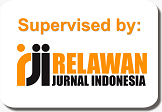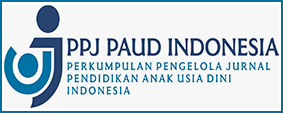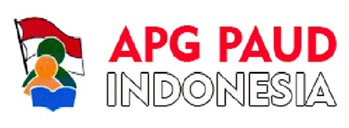Implementasi Pembelajaran Sains Anak Usia Dini Melalui Pendekatan Guided Inquiry
Abstract
Guided inquiry approach in early childhood science learning can provide opportunities for children to conduct investigations and motivate children to gain new knowledge that is more meaningful according to their age. This qualitative descriptive study describes the application of the guided inquiry approach in early childhood science learning. Data collection techniques used documentation studies and semi-structured interviews. A total of ten teachers from five kindergartens in Yogyakarta City became informants in this study. The results of the survey prove that applying science learning with a guided inquiry approach is very effective in stimulating basic science process skills in early childhood and makes it easier for children to understand science concepts with teacher guidance in a fun way.
References
Banchi, H., & Bell, R. (2008). The many levels of inquiry. Science and Children, 46(2), 26–29. https://www.jstor.org/stable/43174976
Cahaya, I. M. E., Poerwati, C. E., & Suryaningsih, N. M. A. (2023). Penerapan model pembelajaran inkuiri terbimbing oleh guru paud. Jurnal Obsesi : Jurnal Pendidikan Anak Usia Dini, 7(1), 855–862. https://doi.org/10.31004/obsesi.v7i1.2534
Cairns, D., & Areepattamannil, S. (2019). Exploring the relations of inquiry-based teaching to science achievement and dispositions in 54 countries. Research in Science Education, 49(1), 1–23. https://doi.org/10.1007/s11165-017-9639-x
Can, B., Yildiz-Demirtas, V., & Altun, E. (2017). The effect of project-based science education programme on scientific process skills and conceptions of kindergarten students. Journal of Baltic Science Education, 16(3), 395–413. http://oaji.net/articles/2017/987-1497964232.pdf
Dana, N. F., & Yendol-Hoppey, D. (2014). The reflective educator’s guide to classroom research: learning to teach and teaching to learn through practitioner inquiry (3rd ed.). Corwin.
Firnandita, D. D., & Reza, M. (2022). Pengaruh pembelajaran kontekstual berbasis inkuiri terhadap kemampuan sains anak kelompok b. PAUD Teratai, 11(1), 60–66. https://ejournal.unesa.ac.id/index.php/paud-teratai/article/view/49314
Hadi, S. A., Azmi, K., & Rosida, S. A. (2021). Melatih keterampilan berpikir kritis anak usia dini melalui penerapan model pembelajaran inkuiri terbimbing. Schemata: Jurnal Pascasarjana UIN Mataram, 10(2), 151–162. https://journal.uinmataram.ac.id/index.php/schemata/article/view/3991/1837
Howitt, C., Upson, E., & Lewis, S. (2011). “It’s a mystery!”: a case study of implementing forensic science in preschool as scientific inquiry. Australasian Journal of Early Childhood, 36(3), 45–55. https://doi.org/10.1177/183693911103 600307
Hudaifah, & Mashudi, E. A. (2024). Peningkatan kemampuan kognitif dalam pembelajaran sains anak usia dini melalui metode eksperimen. Kumarottama: Jurnal Pendidikan Anak Usia Dini, 3(2), 128–137. https://doi.org/10.53977/kumarottama.v3i2.1392
Ismail, I., Ahmad, & Syamsuardi. (2024). Pengaruh pembelajaran inkuiri terbimbing dan inkuiri bebas melalui pendekatan saintifik di tk negeri pembina bungi. Jurnal Eksplorasi Pendidikan, 7(2), 22–37. https://ojs.co.id/1/index.php/jep/article/view/856
Kawalkar, A., & Vijapurkar, J. (2013). Scaffolding science talk: the role of teachers’ questions in the inquiry classroom. International Journal of Science Education, 35(12), 2004–2027. https://doi.org/10.1080/09500693.2011.604684
Khusnaya, F. A., & Kusumaningtyas, N. (2022). Analisis penerapan metode inkuiri dalam pembelajaran untuk anak usia dini. Wawasan Pendidikan, 2(1), 21–31. https://doi.org/10.26877/wp.v2i1.9566 1
Koksal, E. A., & Berberoglu, G. (2014). The effect of guided-inquiry instruction on 6th grade turkish students’ achievement, science process skills, and attitudes toward science. International Journal of Science Education, 36(1), 66–78. https://doi.org/ 10.1080/09500693.2012.721942
Kuhlthau, C. C., Maniotes, L. K., & Caspari, A. K. (2007). Guided inquiry: learning in the 21st century school. In Libraries Unlimited.
Leuchter, M., Saalbach, H., & Hardy, I. (2014). Designing science learning in the first years of schooling: an intervention study with sequenced learning material on the topic of “floating and sinking.” International Journal of Science Education, 36(10), 1751–1771. https://doi.org/10.1080/09500693.2013.878482
Maswal, A., & Suryana, D. (2023). Pengembangan video edukasi berbasis model pembelajaran guided inquiry untuk keterampilan sains di tk. Jurnal Obsesi : Jurnal Pendidikan Anak Usia Dini, 7(5), 5707–5718. https://doi.org/10.31004/obsesi.v7i5.5255
Miles, M. B., Huberman, A. M., & Saldana, J. (2014). Qualitative data analysis: a methods sourcebook. Sage Publications, Inc.
Piasta, S. B., Pelatti, C. Y., & Miller, H. L. (2014). Mathematics and science learning opportunities in preschool classrooms. Early Education and Development, 25(4), 445–468. https://doi.org/10.1080/10409289.2013.817753
Roth, W.-M., Goulart, M. I. M., & Plakitsi, K. (2013). Science education during early childhood a cultural-historical perspective. Springer.
Saçkes, M. (2013). Children’s competencies in process skills in kindergarten and their impact on academic achievement in third grade. Early Education and Development, 24(5), 704–720. https://doi.org/10.1080/10409289.2012.715571
Samarapungavan, A., Patrick, H., & Mantzicopoulos, P. (2011). What kindergarten students learn in inquiry-based science classrooms. Cognition and Instruction, 29(4), 416–470. https://doi.org/10.1080/07370008.2011.608027
Strom, R. K. (2012). Using guided inquiry to improve process skills and content knowledge in primary science. In Science Education. Montana State University, Montana.
Yanto, B. E., Subali, B., & Suyanto, S. (2019). Improving students’ scientific reasoning skills through the three levels of inquiry. International Journal of Instruction, 12(4), 689–704. https://doi.org/10.29333/iji.2019.12444a
Zuhra, S., & Ulhaq, R. (2024). Implementasi guided inquiry dengan lkpd saintifik untuk meningkatkan keterampilan berpikir kritis peserta didik. Jurnal Jeumpa: Jurnal Pendidikan Sains & Biologi, 11(1), 34–43. https://doi.org/10.33059/jj.v11i1.9572

This work is licensed under a Creative Commons Attribution-ShareAlike 4.0 International License.
Authors who publish with this journal agree to the following terms:
- Authors retain copyright and grant the journal right of first publication with the work simultaneously licensed under a Creative Commons Attribution-ShareAlike 4.0 International License that allows others to share the work with an acknowledgement of the works authorship and initial publication in this journal.
- Authors are able to enter into separate, additional contractual arrangements for the non-exclusive distribution of the journals published version of the work (e.g., post it to an institutional repository or publish it in a book), with an acknowledgement of its initial publication in this journal.
- Authors are permitted and encouraged to post their work online (e.g., in institutional repositories or on their website) prior to and during the submission process, as it can lead to productive exchanges, as well as earlier and greater citation of published work (See The Effect of Open Access).











.png)














